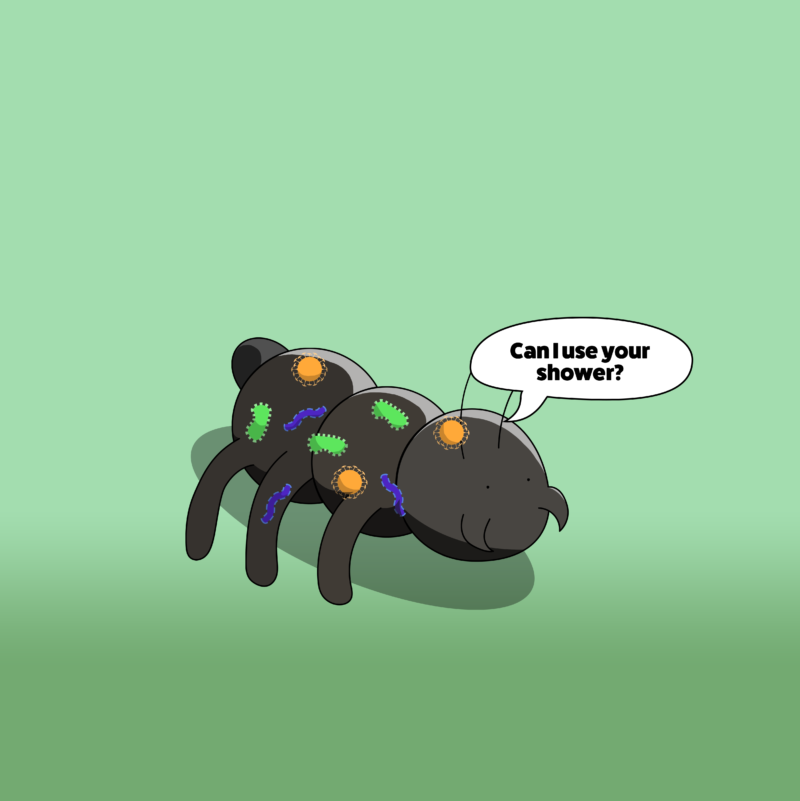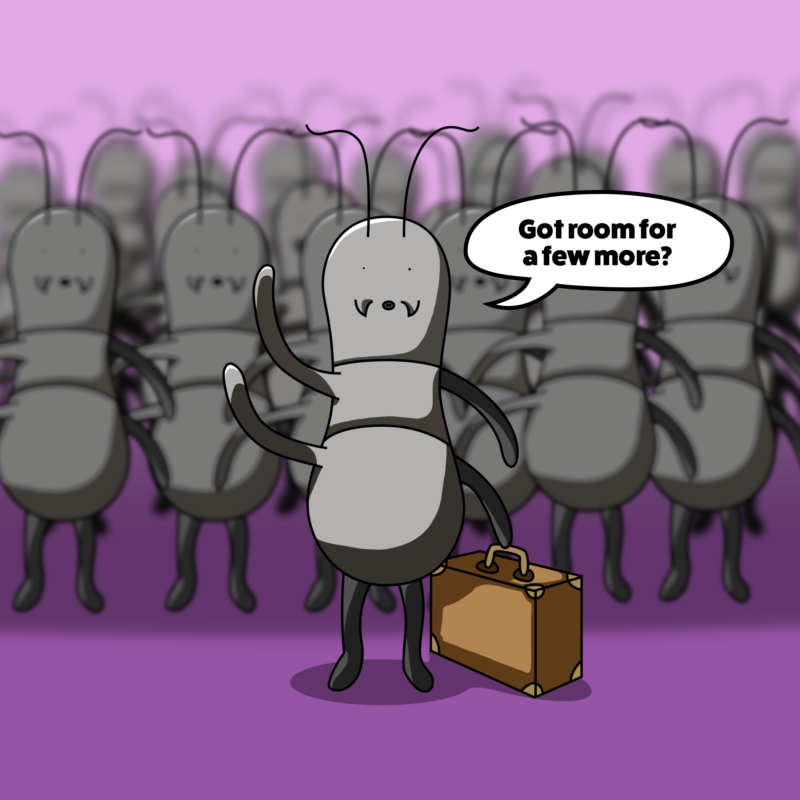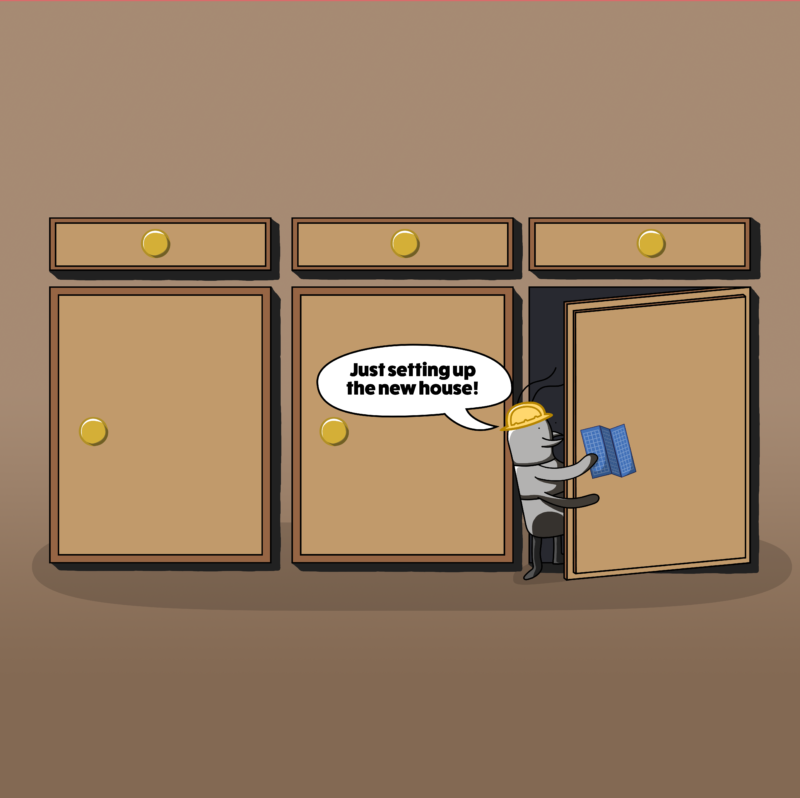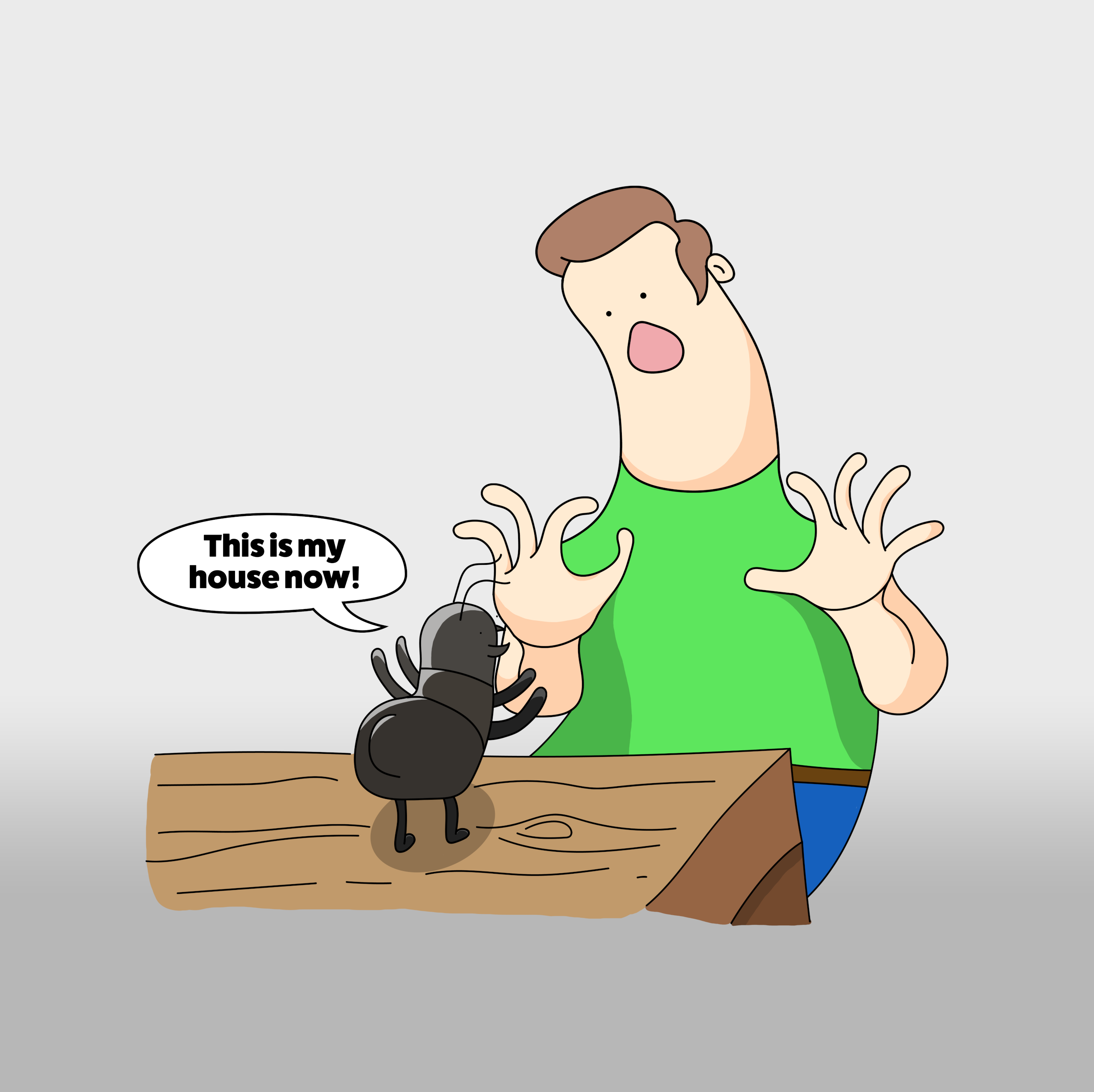No one likes having ants in their home. They can be very tricky to get rid of and can quickly go from a couple of scouts to a full-blown colony in a very short time. Ants are more than just a slight annoyance though. Ants can pose a serious hazard to both you, your home and your business. Do you potential hazards that ants can pose to people or your property?
There are 6 main hazards that ants present. Some are more relevant to certain businesses or homes, but all ants should be considered pests and you need to take appropriate action in dealing with them. If you start to notice signs of ants you should be contacting a skilled and experienced pest controller, like Flick, as soon as possible
Spreaders of disease
While ants don’t carry diseases themselves, they have a very poor sense of personal hygiene. Ants will do just about anything they can to get to a food source. They will trek through dirt, rubbish, and even fecal matter to get to your food. This becomes a serious risk because of cross-contamination. The ants will cover themselves in germs and when they come into your home looking for food, they will leave a trail of biological hazards in their wake.
Increased Infestation
While it might seem obvious, and as is the case with most pests, when you spot one, there are hundreds more that are hidden away. When ants feel like they have found a good source of food they will return to their nests and call other ants to return with them in extreme cases they may even encourage new queens to move into your home and set up a colony closer to the food source. Dealing with a few ants can save you a lot of time and money before they can set up a full-sized nest.
Damage to food. stock or equipment.
As mentioned before, ants will do whatever it takes to get to the food. This means they will happily chew their way through packaging and containers to get to the food within. If gone untreated ants can consume huge amounts of food in a matter of days and cause serious cross-contamination to the food. If you are a business owner you could be putting large supplies of stock at risk as even a small ant infestation could result in all of your stock becoming contaminated.
Damage to structures
While not as common of an occurrence as damage to food supplies, there have been many cases of ants causing damage to structures in the process of creating nests. This usually occurs when they dig around foundations in order to build their nests causing the ground to shift. This is more common in outdoor structures like retaining walls and out-houses but can occur under your home as well. It can be very hard to spot an ant nest but if you see one near your home you should consider it as a potential risk as there is much more below the surface than it may appear.
Setting up nests inside your home
Sometimes when ants find a particularly good food source they will signal for a new queen to come and build a nest closer to the food. Before you know it, you can have a full-blown ants nest hidden inside your kitchen. Keep an eye for flying ants as these are new queens and their mates on the look-out for a new home. Also look out for discarded wings, as this means the ants have found a place to settle into and no longer need to fly around looking for a new home.
Direct Danger to People
The final risk of ants in your home is that of a direct bite to a person! Almost all ants have the ability to administer a nasty bite and while they can be very painful, they are mostly harmless. It is possible though to have an allergic reaction to an ant sting and people have died as a result of an ant bite in the past. This can make your family or visitors feel uncomfortable and unsafe in your home and will almost certainly turn away customers from your business.
Now that you are aware of the hazards that are associated with ants in your home or business it’s time to get on top of that ant problem! Call Flick on 13 14 40 now to deal with the issue ASAP! Our expert technicians will protect your home and business from ants!
Enjoyed this article?
If you found this article helpful, sign up for our free Quarterly Newsletter to receive all our tips and tricks on pest control and disinfection.
Sign Me Up!





